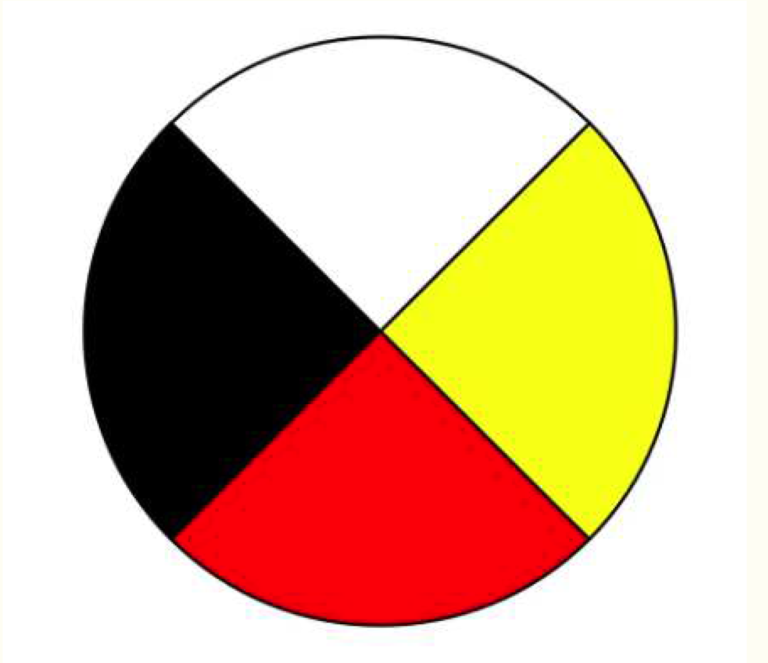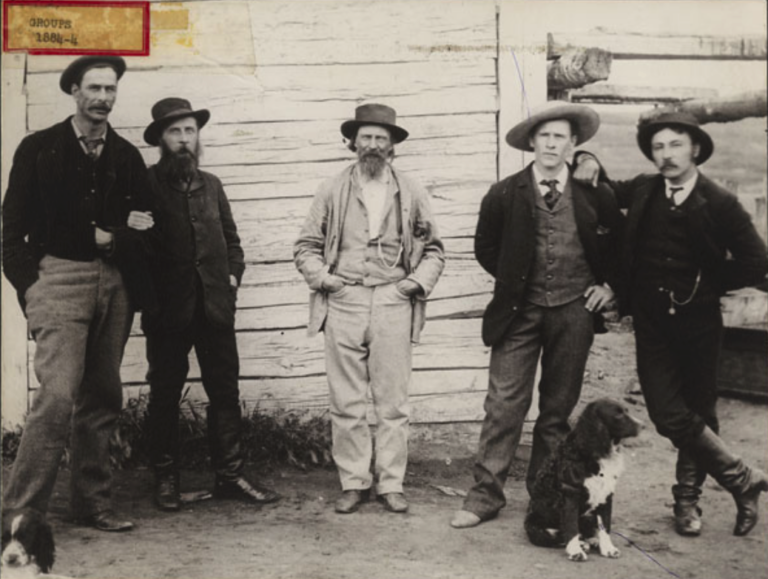Decolonizing Decision-Making Processes In Canada: Towards Truth And Reconciliation
Abstract:
In recent years, there has been a growing recognition of the role that settler colonialism has played in shaping biases in decision-making processes and structures in Canada. Ruck and Wolfe’s concept of the frontier provides a valuable framework for understanding the ways in which colonization has shaped mainstream Canada’s worldviews and power structures. This paper argues that decolonizing decision-making processes is necessary if we are to move beyond white innocence and address the biases that arise from settler colonialism, while incorporating Indigenous laws and engaging in truth and reconciliation. The paper examines Ruck and Wolfe’s frontier concept and its relevance to modern-day society, the biases that exist within committee-level decision-making processes, and successful approaches to decolonizing decision-making that prioritize respect, inclusivity, and Indigenous knowledge. The paper concludes by applying the Truth and Reconciliation Commission’s Calls to Action to decision-making processes in Canada.
Introduction:
The impact of settler colonialism on Indigenous peoples in Canada is undeniable. Colonization has shaped biases in decision-making processes and structures that continue to influence the way in which modern-day society operates. The Truth and Reconciliation Commission of Canada (TRC) has called for transformative action to address the ongoing effects of colonization and achieve true reconciliation between Indigenous and non-Indigenous peoples. Decolonizing decision-making processes is a critical component of this transformative action, as it has the potential to shift power dynamics and promote inclusivity, respect, and the recognition of Indigenous laws and ways of knowing. This paper explores the concept of the frontier, the biases that exist within committee-level decision-making processes, and successful approaches to decolonizing decision-making. It also applies the TRC’s Calls to Action to decision-making processes in Canada.
The Frontier Concept:
Ruck and Wolfe’s frontier concept refers to the colonizer’s perceived boundary between the known and the “unknown”, the civilized and the “savage”, the settled and the “wild”. The frontier represents the fantasy of “taming” the land and is a form of cognitive dissonance that allowed settlers to do illegal and heinous things during colonization. This fantasy still pervades modern-day society, with Indigenous nations often being seen as “conquered”, resulting in their exclusion from decision-making processes. The frontier concept provides a valuable framework for understanding the ways in which colonization has shaped mainstream Canada’s worldviews and power structures, and the biases that continue to perpetuate through decision-making processes.
Biases in Committee-Level Decision-Making:
The committee-level provides a significant opportunity for change in any area of practice, as it is a powerful community that oversees wider projects, strategic plans, and various initiatives whose decisions have a ripple effect on society. However, the committee remains dominated by white people in power who mirror each other, perpetuating the same biases and exclusions. One example of white innocence in committee-level decision-making is the belief that Indigenous peoples are a homogeneous group with the same opinions and beliefs. This belief is rooted in the colonial idea of the “Indian problem,” which treated Indigenous peoples as a monolithic group that needed to be “civilized” or assimilated. As a result, Indigenous peoples are often excluded from decision-making processes, as their diverse voices and perspectives are not recognized or valued.
Successful Approaches to Decolonizing Decision-Making:
There are several successful approaches to decolonizing decision-making that have been observed in practice, which demonstrate the importance of including diverse perspectives, embracing collaboration, and prioritizing respect and inclusivity. These approaches include:
- Decolonizing Robert’s Rule of Order: Robert’s Rules of Order, as a set of procedures for running meetings and making decisions, were developed within a Western context and are based on a hierarchical, individualistic approach to decision making. Critics argue that Robert’s Rules of Order, and other similar decision-making tools, are tools of colonization because they prioritize the voices of those in power and are often used to silence marginalized voices. Decolonizing decision-making structures involves recognizing the limitations of tools like Robert’s Rules of Order and actively working to adapt decision-making processes to better reflect the values and needs of everyone at the table. This may involve incorporating Indigenous ways of knowing, such as consensus-based decision-making, and ensuring that all voices are heard and respected.
- Including Indigenous Knowledge Holders: Decolonizing decision-making structures involves recognizing that Indigenous knowledge holders have important insights and perspectives to contribute. Therefore, it is important to include Indigenous knowledge holders in decision-making processes and to ensure that their contributions are given equal weight to those of Western experts. Indigenous knowledge holders can provide invaluable insight into the environmental, social, and cultural implications of decisions and policies.
- Developing Culturally Appropriate Decision-Making Processes: Many decision-making processes are designed with a Western, individualistic mindset, which is not appropriate in today’s diverse society. Decolonizing decision-making structures involves developing fluid and responsive decision-making processes that are inclusive, respectful, and reflective of the unique values of all voices. The Indigenous Sharing Circle is one framework that has been successful in promoting inclusivity and respect. This model involves sitting in a circle, sharing knowledge and experiences, and arriving at a consensus through respectful dialogue and active listening.
- Emphasizing Relationship-Building: In many Indigenous cultures, decision-making is not just about the outcome, but also about the relationships that are built and strengthened through the process. Decolonizing decision-making structures involves emphasizing relationship-building and prioritizing the well-being of the community over individual interests. Building relationships takes time, but it is essential for creating a foundation of trust and mutual respect.
- Prioritizing Community Consultation and Consent: Decolonizing decision-making structures involves recognizing that decisions that impact Indigenous communities should be made in consultation with those communities, and with their free, prior, and informed consent. This means taking the time to build relationships with communities, engaging in meaningful dialogue, and being open to feedback and criticism. It also means acknowledging and respecting the unique governance structures and decision-making processes of Indigenous nations and working collaboratively to ensure that these structures are incorporated into broader decision-making processes.
Applying Truth and Reconciliation Calls to Action
In Canada, the Truth and Reconciliation Commission released its final report in 2015, which included 94 Calls to Action aimed at redressing the harm caused by residential schools and advancing reconciliation between Indigenous and non-Indigenous peoples. Many of the Calls to Action are directly relevant to decolonizing decision-making processes and structures. Some of these include:
Call to Action 5: Calls for the federal, provincial, territorial, and municipal governments to develop strategies and action plans to ensure the inclusion of Indigenous peoples in decision-making processes that impact their lives, communities, and territories.
Call to Action 8: Calls for the federal government to develop and implement a national strategy to address the high rates of violence against Indigenous women and girls.
Call to Action 14: Calls for the creation of a national council for reconciliation to monitor and oversee the implementation of the Truth and Reconciliation Commission’s recommendations.
Call to Action 17: Calls for the recognition and implementation of the United Nations Declaration on the Rights of Indigenous Peoples as the framework for reconciliation.
Call to Action 23: Calls for the establishment of measurable goals to close the gaps in health outcomes between Indigenous and non-Indigenous peoples.
These Calls to Action reflect the need for governments, organizations, and individuals to take concrete steps towards decolonization and reconciliation. They emphasize the importance of including Indigenous perspectives and knowledge in decision-making processes, recognizing the unique rights and governance structures of Indigenous nations, and working towards a more equitable and just society for all.
Applying the Truth and Reconciliation Calls to Action to the committee-level decision-making processes involves recognizing the limitations of current structures and actively working towards a more inclusive and equitable approach. This may involve adopting new decision-making processes, such as consensus-based decision-making, or adapting existing processes to better reflect Indigenous perspectives and values.
One way to begin this process is to actively seek out and include Indigenous Knowledge Holders in decision-making processes. This involves recognizing their expertise and unique insights and ensuring that their contributions are given equal weight to those of Western experts. It also involves building meaningful relationships with Indigenous communities and respecting their rights and sovereignty.
Another approach is to prioritize community consultation and consent in decision-making processes. This involves recognizing that decisions that impact Indigenous communities should be made in consultation with those communities, and with their free, prior, and informed consent. This means taking the time to build relationships with communities, understanding their unique perspectives and needs, and ensuring that their voices are heard and respected in the decision-making process.
It is also important to develop culturally appropriate decision-making processes that are reflective of the unique values and needs of all voices. This may involve incorporating Indigenous ways of knowing, such as the Indigenous Sharing Circle, which has been successful in promoting inclusivity and respect.
Emphasizing relationship-building and prioritizing the well-being of the community over individual interests is another important approach to decolonizing decision-making processes. In many Indigenous cultures, decision-making is not just about the outcome, but also about the relationships that are built and strengthened through the process. By prioritizing relationships and community well-being, decision-making can become a collaborative process that is grounded in respect, trust, and mutual understanding.
Overall, decolonizing decision-making processes and structures is critical in the battle between truth and reconciliation and the cognitive dissonance of the romance of the frontier. It requires recognizing the limitations of current decision-making tools and actively working to adapt decision-making processes to better reflect the values and needs of everyone at the table, particularly Indigenous voices.
Conclusion
In conclusion, settler colonialism has played a significant role in shaping biases in decision-making processes and structures. Ruck and Wolfe’s frontier concept provides a valuable framework for understanding the ways in which colonization has shaped mainstream Canada’s worldviews and power structures. White innocence has allowed for the exclusion of Indigenous perspectives and the perpetuation of biases in decision-making processes.





